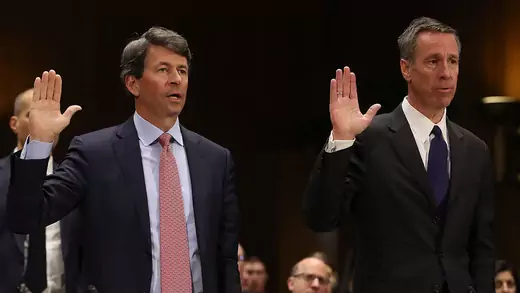- RealEcon
- Israel-Hamas
-
Topics
FeaturedIntroduction Over the last several decades, governments have collectively pledged to slow global warming. But despite intensified diplomacy, the world is already facing the consequences of climate…
-
Regions
FeaturedIntroduction Throughout its decades of independence, Myanmar has struggled with military rule, civil war, poor governance, and widespread poverty. A military coup in February 2021 dashed hopes for…
Backgrounder by Lindsay Maizland January 31, 2022
-
Explainers
FeaturedDuring the 2020 presidential campaign, Joe Biden promised that his administration would make a “historic effort” to reduce long-running racial inequities in health. Tobacco use—the leading cause of p…
Interactive by Olivia Angelino, Thomas J. Bollyky, Elle Ruggiero and Isabella Turilli February 1, 2023 Global Health Program
-
Research & Analysis
FeaturedA clear-headed vision for the United States' role in the Middle East that highlights the changing nature of U.S. national interests and the challenges of grand strategizing at a time of profound change in the international order.
Book by Steven A. Cook June 3, 2024
-
Communities
Featured
Webinar with Carolyn Kissane and Irina A. Faskianos April 12, 2023
-
Events
FeaturedJohn Kerry discusses his work as U.S. special presidential envoy for climate, the challenges the United States faces, and the Biden administration’s priorities as it continues to address climate chan…
Virtual Event with John F. Kerry and Michael Froman March 1, 2024
- Related Sites
- More
November 22, 2016
CybersecurityThe U.S. federal government has long debated using insurance as a tool to create incentives for better cybersecurity in the private sector, and has tried to prod the insurance industry to offer cyber…

October 16, 2019
CybersecurityCompanies should disclose instances of cyber-enabled intellectual property theft. Disclosure requirements would give companies greater incentives to protect their intellectual property and allow investors to make better-informed decisions.

November 30, 2011
MyanmarOver the past year, Myanmar, ruled for five decades by the military, has undergone its most dramatic reforms in decades. A new civilian government has begun opening the economy, freeing political pri…

June 26, 2018
Monetary PolicyTo minimize the risk of greater global imbalances, U.S. policymakers should rethink U.S. fiscal policy and focus on the transatlantic imbalances, not the bilateral trade deficit with China.

December 2, 2016
Financial MarketsSteven A. Tananbaum Senior Fellow for International Economics Robert Kahn writes that financial markets rallied following the U.S. election, on hopes that President-Elect Donald J. Trump’s fiscal stimulus and deregulation initiatives would spur corporate profits and growth. Perhaps so, but a strong case could be made for the opposite: that Trump’s economic agenda will prove disruptive to trade and growth, face growing headwinds in Congress, and exert a contractionary impact on the U.S. economy.
 Online Store
Online Store
